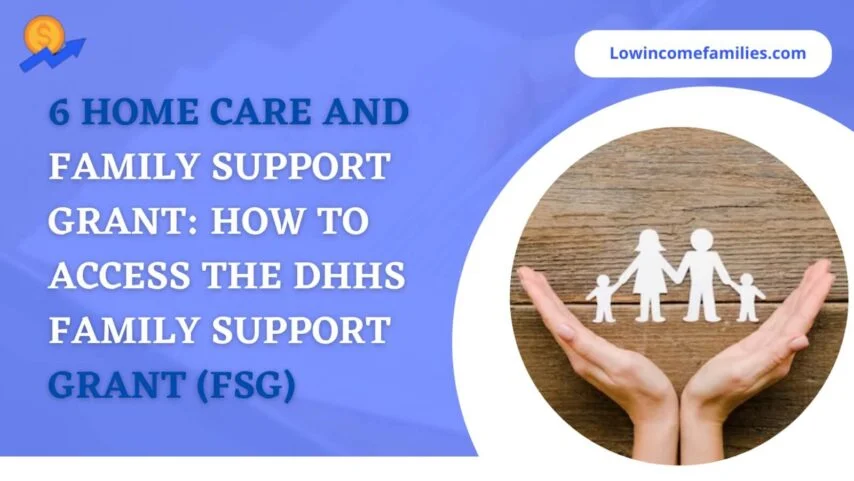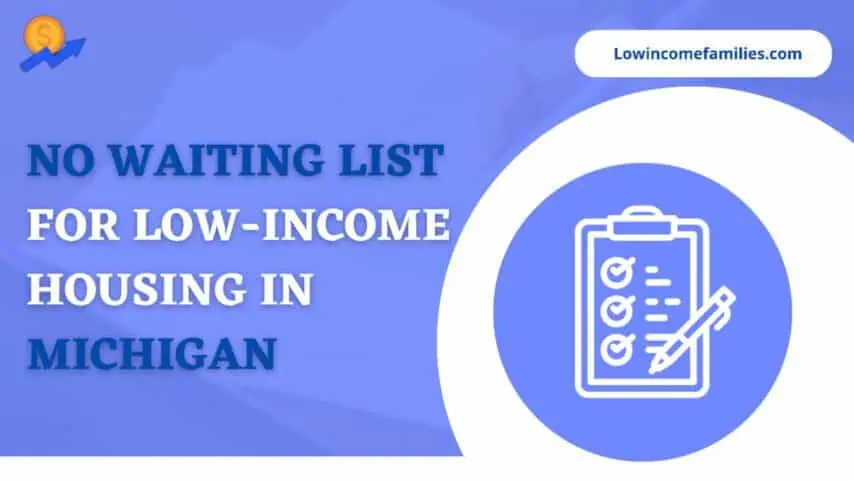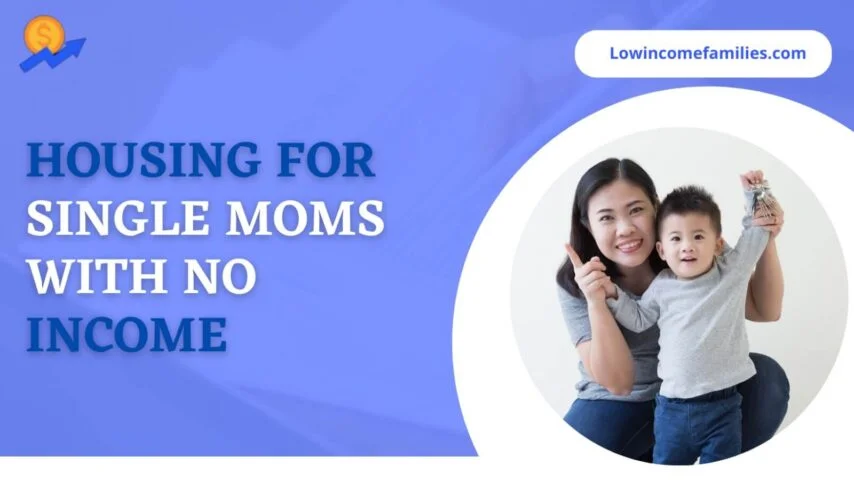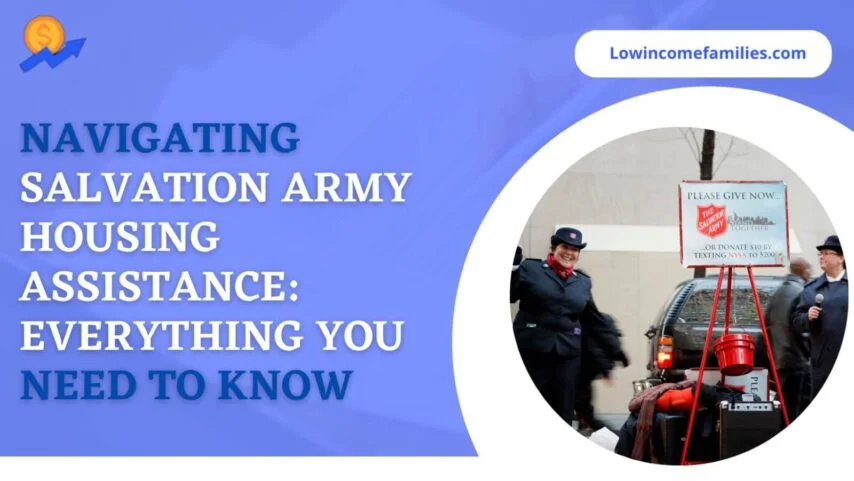The Family Support Grant (FSG) from the U.S. The Department of Health and Human Services (DHHS) is a welcome resource for individuals and families needing financial assistance.
We’ll break down what this grant is and how to apply for it, including eligibility requirements for Temporary Assistance for Needy Families (TANF), Social Security Disability Insurance (SSDI), and Supplemental Security Income (SSI). Let’s get started!
Home Care And Family Support Program (DHHS)
The Home Care and Family Support Program (DHHS) is a state-funded program that provides financial assistance to low-income families with children. The program assists families with the costs of child care, transportation, and other basic needs.
Families participating in the program must meet certain income eligibility requirements. The Department of Health and Human Services (DHHS) administers the program. Families can apply for the program online or at their local DHHS office.
Family Support Grant (FSG)
The Family Support Grant (FSG) is a program administered by the Department of Health and Human Services (HHS) that provides financial assistance to families with children with disabilities.
The FSG is available to families with incomes below 200% of the federal poverty level and can cover child care, transportation, and medical expenses. Families who receive SSDI or TANF benefits are automatically eligible for the FSG.
To apply for the FSG, families must complete an application and submit it to their local HHS office. Families will also need to provide documentation of their income and expenses and any other pertinent information requested by HHS.
Once approved, families will receive a monthly payment that can be used to cover eligible costs. The FSG is a vital resource for families struggling to make ends meet while caring for a child with a disability. For more information on the FSG and how to apply, please visit the HHS website or contact your local HHS office.
Social Security Disability Insurance (SSDI)
Many low-income households find themselves in a bind when accessing the DHHS Family Support Grant (FSG). They may not have the resources or knowledge to navigate the system and get the financial assistance they need. That’s where social security disability insurance (SSDI) comes in.
The Social Security Administration (SSA) administers SSDI benefits to eligible individuals who cannot work due to a physical or mental disability. To qualify for SSDI, applicants must have worked and paid Social Security taxes for a certain period, typically five out of the last ten years.
They must also meet the SSA’s definition of “disability.” While the FSG is a needs-based program, SSDI is an entitlement program. This means that applicants are entitled to receive benefits if they meet the eligibility requirements.
The amount of SSDI benefits an individual receives is based on their lifetime earnings. The average monthly benefit amount is just over $1,000, which can vary depending on an individual’s earnings history.
For example, someone with a higher lifetime earning would receive a higher monthly benefit than someone with a lower lifetime earning.
In addition to providing financial assistance, SSDI offers recipients other protections and benefits. For example, recipients are automatically enrolled in Medicare after 24 months of receiving SSDI benefits.
This can be vital for those with expensive medical needs that would otherwise be difficult or impossible to afford
Low Income Housing With No Waiting List In Illinois
Temporary Assistance For Needy Families (TANF) Program
The Temporary Assistance for Needy Families (TANF) program is a state-run program that provides financial assistance to low-income families with children. The program is funded by the federal government and administered by the states. Each state has different eligibility requirements and benefits.
Generally, families must meet certain income and asset limits to qualify for TANF. Families must also be employed or participating in work-related activities, such as job training. Families receiving TANF benefits must cooperate with child support enforcement efforts.
TANF benefits can be used for various expenses, including rent, utilities, food, clothing, and transportation. Some states offer additional benefits, such as child care and job training. TANF benefits are typically provided through cash assistance and other services.
The amount of TANF assistance a family receives is based on need. Families must report income and asset changes to the program’s state agency. Failure to do so may result in termination of benefits or fraud charges.
Supplemental Security Income (SSI)
Supplemental Security Income (SSI) is a federal program that provides financial assistance to low-income individuals who are blind or have another disability. The program is administered by the Social Security Administration (SSA).
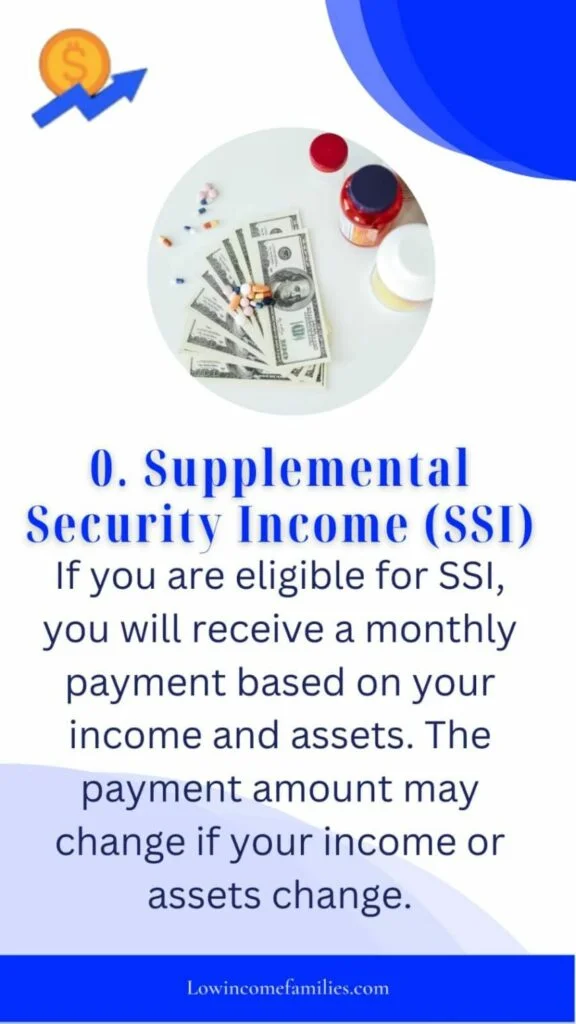
To be eligible for SSI, you must meet certain income and asset limits. If you have income from employment, it must be below a certain level. And, if you have other assets, such as savings or property, their value must be below a certain amount.
If you are eligible for SSI, you will receive a monthly payment based on your income and assets. The payment amount may change if your income or assets change.
The Administration For Children and Families (ACF)
The Administration for Children and Families (ACF) is a United States Department of Health and Human Services division.
ACF is the federal agency responsible for administering the Temporary Assistance for Needy Families (TANF) program, which provides financial assistance to low-income families with dependent children.
ACF also administers the Social Security Disability Insurance (SSDI) program, which benefits-eligible workers who cannot work due to a disability. To access the DHHS Family Support Grant (FSG), contact your local ACF office first.
You can find contact information for your local ACF office by visiting the ACF website. Once you have reached out to your local ACF office, a caseworker will be assigned to you and will work with you to determine if you are eligible for the FSG.
If you are found to be eligible, the caseworker will help you complete the necessary paperwork and provide you with information on how to access the grant funds.
Conclusion :-
Navigating the DHHS Family Support Grant (FSG) can be daunting, especially for those unfamiliar with SSDI, TANF, or other government programs. We hope this guide has provided you with useful information and tips for accessing the FSG.
Remember that getting assistance from Home care and family support grants is an excellent opportunity to get back on your feet and create a brighter future for yourself and your family. With diligence and dedication, you can make positive changes and receive financial help through the DHHS program!
Frequently Asked Questions
How much money can I receive from the grant?
The amount of money you can receive from the grant depends on your circumstances. The government has set a maximum amount you can receive, but you may not be eligible for the full amount.
How do I apply for the grant?
You can apply for the grant by filling out an application form on the government website.
What documents do I need to apply for the grant?
To apply for the grant, you will need to provide proof of your identity, proof of your current address, proof of financial need, and evidence of any disability or other special circumstances that may affect your application.
How long does the grant decision take?
Typically, grant decisions are made within two to four weeks, though this timeline may be extended depending on the availability of grant funds and the volume of applications received.
Does the Foundation provide funding for new or expanding businesses?
No, the Foundation does not fund new or expanding businesses. We focus on providing financial assistance to organizations in the community, particularly those serving low-income and vulnerable populations.
